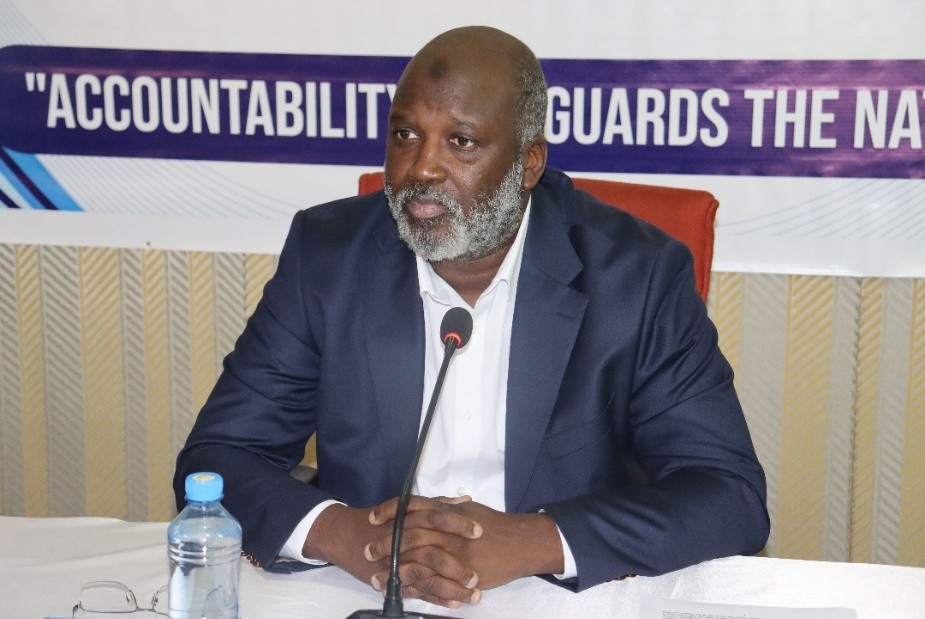By Kebba Af Touray,Sulayman Bah
Copyright foroyaa

By Kebba AF Touray
Former Attorney General Abubacarr M. Tambedou returned before the National Assembly’s select committee on Jammeh’s assets on Wednesday, offering lawmakers a detailed look into how the Janneh Commission was created, structured, and guided in its mandate to probe the vast holdings of former president Yahya A.J.J. Jammeh.
In his testimony on Wednesday, September 17, 2025, Tambedou stressed the limited role of the Secretary to the Commission, emphasising that authority rested firmly with commissioners. “Secretary to the Commission will be under the guidance of the commissioners, particularly the Chair, and his role will be to execute the directives, instructions, orders or requests of the commissioners,” he told the committee.
Establishment of the Commission
Tambedou recounted how the Janneh Commission was formed. Asked by Counsel Dibba to state when it was established, he said it came into being on June 17, 2017, by legal notice under section 200 of the 1997 Constitution. When pressed on whether any other law was considered, he replied: “The Commission of the Inquiry Act.”
Dibba suggested that subsequent commissions benefited from greater administrative and financial strength than the Janneh Commission. Tambedou agreed. “Absolutely. The first reason is that the Janneh Commission was under section 200 of the constitution, and the other commission you referred to with financial autonomy was set up by an act of the National Assembly,” he said.
He explained that commissions created under section 200 lacked financial autonomy, unlike those established through acts of Parliament, which “were more comprehensive and their Terms of Reference were more detailed, which benefited from a lot of preparation and planning.”
Independence and Autonomy
When Dibba observed that all commissions were meant to be independent, Tambedou responded: “The commissions established pursuant to the act of the National Assembly were not inconsistent with section 200 of the constitution, but even where commissions are established by acts of the National Assembly which appear to have financial autonomy, they are still funded through the government.”
The difference, he said, lay in management. “This is an exception in management of those resources, which is a question of accountability in the end,” he explained.
Asked which model he preferred, Tambedou replied: “The higher or the greater the decree of financial autonomy, the greater the perception of independence, but in my own view, independence for me means operational independence.”
He added, “The ability to make decisions that are based on relevant considerations and not irrelevant considerations, and not to be subject to the direct or control of any person or authority, for me that would be independence.”
He noted that “in the case of the Janneh Commission, they bent over backwards to provide them the resources they needed to do their work independently.”
Remuneration and Appointments
Turning to the issue of pay, Counsel Dibba referenced a document that set out remuneration rules under the Commission of Inquiry Act. Tambedou explained that “when it comes to the commissioners, they ought not to be paid anything beyond what the actual cost of the commission is, unless the National Assembly is involved.” He added that “when it comes to the Secretary, the President has the prerogative to determine what the Secretary should be paid.”
Tambedou told the committee that three commissioners were appointed by the President on his recommendation, though this did not include the Lead Counsel. As part of “head hunting,” he said, the Ministry created criteria for the chairperson — requirements later echoed in other commissions like the TRRC.
Appointees, he explained, needed to be Gambians “of high repute, of competence and integrity, trustworthy and non-partisan.” Based on those criteria, he approached S.B.S. Janneh. “I have great respect for those who fulfilled all criteria,” Tambedou said. “He came to my office and we discussed and offered him the opportunity to chair the commission, and that if he accepts, I will forward his name to the president.”
Asked who advised the choice of the other two commissioners, Tambedou answered: “Yes, I did. I advised the President on the choice of commissioners Bai Mass Saine and Abiosseh George,” applying the same standards.
Terms of Reference
Dibba pointed out that commissioners were appointed through both a legal notice and a letter. Tambedou agreed, saying: “In addition to that, the ToR contained in the legal notice provides the parameters within which the commission should operate, as to how the commission functions effectively, that will be up to the commission to determine.”
Asked if the Chair had been given any special ToR, Tambedou was clear: “Neither the chair nor the commissioners were given a specific ToR outside the legal notice or the constitution or the commission of the inquiry act.”
“The legal is very clear as to what the committee is expected to establish as a matter of fact, and it was up to the commission to determine how best to achieve that,” he said.
The Secretary’s Role
The testimony returned to the responsibilities of the Secretary, a position filled by Alhagie Mamadi Kurang. Tambedou explained that the appointment was made by the President on his recommendation.
Asked whether Kurang had a specific ToR, Tambedou replied: “Not to my recollection. The idea was for the commission to provide Mr Kurang with his ToR and responsibility.”
He said there was no need to communicate this formally, since “the ToR cum mandate of the commission is included in the legal notice and the objectives are clearly spelt out, how best to achieve that will be up to the commission to determine.”
He added: “What we did was to provide a secretary who shall be under the authority of the commissioners and Counsel and her team who will assist the commissioners. The de-alienation of those responsibilities is clear as it was or the commission to develop that further, and what we did was to allow them the independence to do so in a manner that they thought was fit.”
On Kurang’s qualifications, Tambedou said: “He will be under the guidance of the commissioners, particularly the Chair, and his role will be to execute the directives, instructions, orders or requests of the commissioners.”



